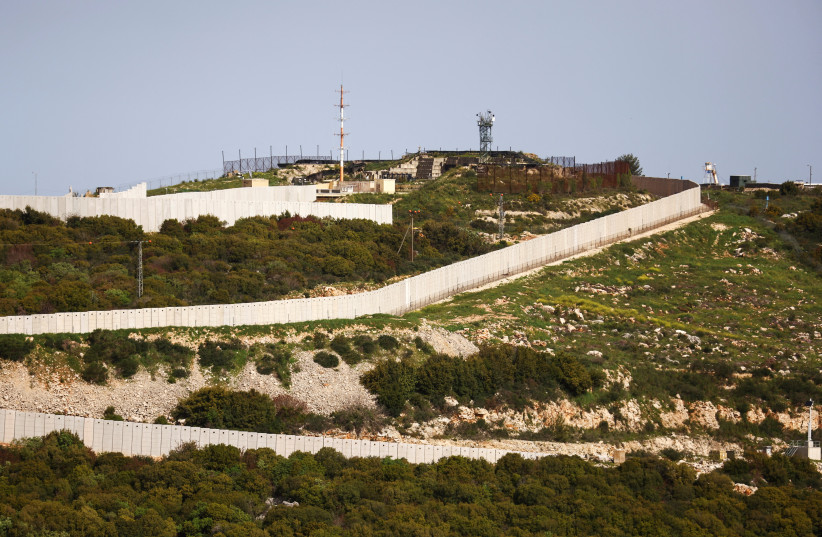There was uneasy quiet on the Lebanon and Gaza fronts on Saturday night following multiple rounds of rocket fire on Israel from Hamas-affiliated groups and counter airstrikes from the IDF in recent days.
At the same time, following a general escalation of terror attacks, Defense Minister Yoav Gallant announced on Saturday night that the West Bank closure would be extended until the end of Passover and that all Ramadan leniencies would be canceled.
These announcements came alongside the security cabinet’s decision to call up additional Border Police members.
Rocket fire from Lebanon
On Thursday, 35 rockets, the largest barrage since 2006, were fired from Lebanon against the North during Passover, only a day after the South was hit with rockets from Gaza, and two days after a conflict between rioters and police on the Temple Mount.
No Israelis were killed, but three civilians were injured by either falling debris or incidental injuries as 25 of the rockets were shot down by the Iron Dome missile-defense system, with five landing in open areas and the landing point of some of the others being kept under wraps.

In a rare move, the IDF accused Hamas of acting from both Lebanon and Gaza, with strong implications that Iran was at least partially the mastermind behind the incidents – and with Hezbollah, the Islamic Republic’s proxy that is the strongest force in Lebanon, approving the attack.
Despite Hezbollah, the Lebanese army and various Palestinian groups denying that they were involved and trying to portray the event as a smaller group that went rogue, the IDF on Friday hit a number of Hamas targets in both Lebanon and Gaza in response.
There was no further response from Hamas or Hezbollah in Lebanon and only mild responses from Gaza, appearing to suggest that the sides wanted to restore the stalemate of quiet, which has existed since the last major round of conflict with Gaza in August 2022.
Israel’s response was somewhat limited given that no civilians were killed. It appeared that lower-grade rockets were fired in an intentionally less destructive way as many civilians are currently up in the North for the Passover holiday.
Sources have indicated that Israel is also still worried about being dragged into a full-scale war with Hezbollah or Hamas, as well as being concerned with trying to reduce the already explosive terror levels in the West Bank.
Despite an unprecedented recent explosive attack by a Hezbollah terrorist at the Megiddo junction in the North, Israel has not struck the terrorist group back in Lebanon, with sources saying it has sufficed with attacks on Iranian units or proxies attributed to the IDF in Syria.
As the rockets were fired from Lebanon, the municipality of Metulla told residents to seek shelter immediately and to stay there until further notice, adding that the public shelters in the city were open and available.
